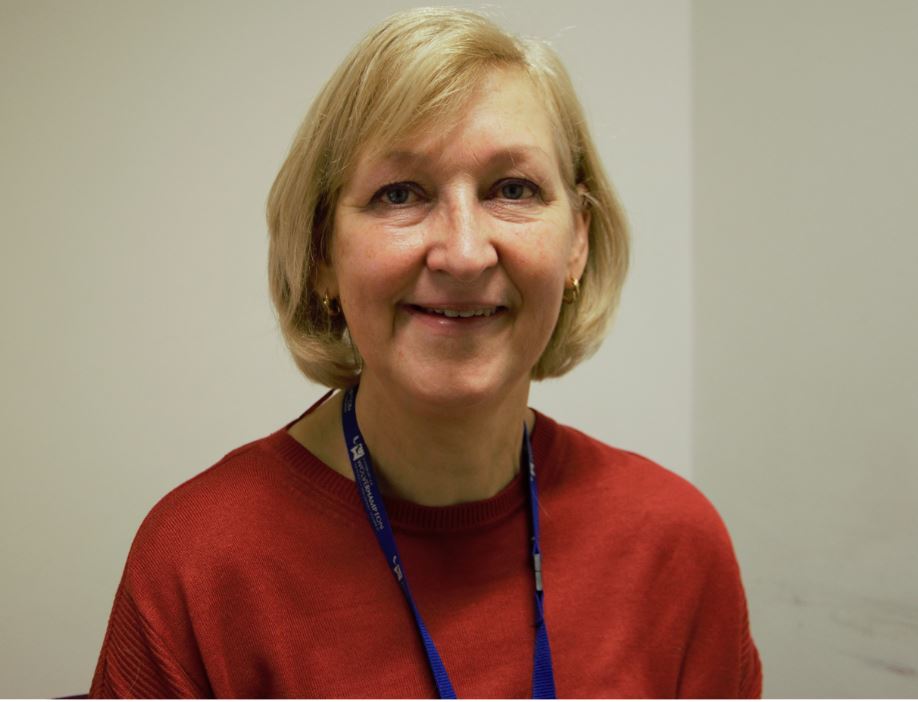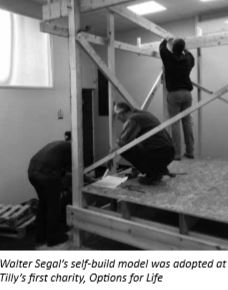People with moderate learning disabilities often miss out, and Liz Tilly has spent more than 30 years addressing this, including setting up charities. She talks to Seán Kelly
Liz Tilly never intended to start a charity. “I never expected that Options for Life would grow as it did,” she says.
Back in the late 1980s, she was galvanised to set up Options for Life by her experiences in a special school. “I was a special school teacher until my mid-20s, and the lack of opportunities for adults when they left school motivated me to apply for Opportunities for Volunteering funding,” she says. The local authority liked what she was doing and, when the initial grant funding ended, renewed and increased it. Options for Life, based in Sandwell, quickly grew, with Tilly as the founder-chief executive. By the time she left in 2008, it employed 60 staff.
People who came to Options for Life could choose from a range of services and social activities to create a bespoke package of support and opportunities to have a full life. There were small day services, support for living at home and support for parents, as well as evening and weekend activities. Tilly says: “I have always had a special concern about people who are on the edge – the people who are not eligible for funding. They don’t get services and they don’t get support.” She means people with a moderate learning disability. “The needs of people with a more severe disability are met through social services-funded provision. The guys who are that bit more able, who aren’t eligible for specialist services, consistently fall through the gaps.”
A unique aspect of Options for Life was its self-build project. Together with Black Country Housing, it developed 10 houses based on Walter Segal’s model of self-build construction, which uses a modular, timber frame system that is straightforward to build and low maintenance. With National Lottery and regeneration funding and support to find a site from the council, the plan took off. Five of the homes were for people with a learning disability and five for neighbours who were entitled to social housing. Also included were a cafe and hairdresser and a new base for Options for Life. The idea was to build a community with support on site.
As Tilly says, “it worked”. The houses were built and everyone, including Options, moved in. All the people with learning disabilities were involved at some level, whether it was in building or painting, using the wheelbarrow or sweeping up. Tilly remembers workmen coming in to the cafe for breakfast sandwiches at 10am and local women having tea and toast while they waited for their hairdresser appointments. Options ran art and parent support sessions both in people’s houses and in their new communal space.
Passing on know-how
By 2008, Tilly had started doing a PhD and decided it was time to move on; she now works part time as a senior lecturer in social care at the University of Wolverhampton, a post she has held since 2013. She was also excited about starting a smaller project, Building Bridges. “I was ready for a change and a new challenge,” she says.
Building Bridges is a co-training social enterprise involving people with a learning disability, again based in Sandwell. Tilly had previously been involved in the Training Partnership Project run by BILD (originally the British Institute of Learning Disabilities) where a trainer and a person with a learning disability deliver training together. She knew people from Options who were keen to be involved. “We got some funding and things took off quite quickly from there,” she says.
“The guys who are that bit more able, who aren’t eligible for specialist services, consistently fall through the gaps”
Building Bridges is still running. It provides training courses for people with a learning disability and staff. It also carries out inclusive research, involving people with a learning disability at all stages, not just in data collection. Tilly says the best courses for those with a learning disability are those that can be applied in daily life so what people learn remains with them. She tells me about a Making Your Money Go Further course, which is about small life hacks on how to make savings. Because the co-trainers have used them, the course has a genuine impact.
Building Bridges also provides training for professional staff. The most popular courses for staff are Supporting Parents with a Learning Disability and Making Easy-Read Materials. Building Bridges has just been awarded an Awards for All grant of nearly £9,000 to continue its research on the barriers to community inclusion for people with a learning disability (see ‘Taking the stress out of going out’, winter, page 11). This funding will enable the group to go out and speak to more people about their experiences. They will write a report on what would help, which will focus on solutions.
The early indications are that barriers to inclusion are rarely to do with the group or event that people are attending. Members report getting a great welcome from churches and other organisations and at activities, but are put off by having to use public transport. Fears of knife crime and other dangers are made worse by witnessing frightening behaviour on buses, and seeing that bus drivers working alone can seem unwilling or unable to curb antisocial behaviour. The group has discussed what makes them feel safer. One is keeping your phone in a different pocket or bag from your money. Then, even if you do get mugged, you will still be able to call someone. The important thing, says Tilly, is that it makes people feel safe enough to go out.
Social life, real life
More recently, she has set up a charity called Jigsaw, which offers outings and other activities, for people with learning disabilities in Sandwell. Its members like the strapline: “For friends, fun and going places.”
It began when some Building Bridges members were arranging a coach trip to see the Winter Lights in Blackpool. Tilly found herself assisting them on an almost voluntary basis. “I said to myself, ‘This should be an organisation’.”
She has organised a regular walking group since the 1980s and also arranges a regular curry club with visits to balti houses. All Jigsaw activities involve volunteers. The only paid staff are the office workers, Tilly and her colleague Jayne Richards. Volunteers are seen not as helpers but as equals or friends. In the walking group, volunteers might help someone lace their boots or assist them on uneven ground if they are a bit wobbly but are otherwise “extra people to c hat”.
hat”.
There is no prohibition on people becoming genuine friends: “It’s not like a service where you don’t give out your mobile number. The idea is that people will keep in touch after the group and maybe even see each other.”
Tilly is well aware of the element of risk but says “we are small enough to manage it”. All volunteers are vetted, have disclosure and barring checks and cannot do anything unsupervised until Jigsaw knows them well.
As Tilly recognises, this is a bit radical: “In most services, you would never let people come to your house or go to their house. You would never do anything on your own with them. This just ‘others’ them. It makes people think they are space aliens.”
Jigsaw prepares volunteers, telling them that if they give their phone numbers out, they may become “flavour of the month” and get a lot of calls at first, and many are fine about that. Tilly adds: “A lot of members are living on their own and going home to empty flats.”
Jigsaw runs weekly activities where people can see friends and take part in social activities. It is making it possible for people to have a real life, says Tilly: “Jigsaw has enabled people to have a bit of a life outside the worry of not feeling you can afford the heating or whatever.”
The charity has received significant lottery funding for development over the next four years. Tilly’s reaction is: “Phew! You can just focus on getting the job done, you know, enabling people to have a life.”
A four-year award gives Tilly a short break from a “great frustration” – forever chasing funding. A problem is that short-term funding is being used to address long-term problems. “But short-term interventions don’t work,” she says. “People need ongoing support and commitment.”
Tilly, too, has shown long-term commitment. She says she would never have guessed as a young teacher that she would still be working with many of the same people more than 30 years later. She has reinvented and developed her work to continue working with people who have known and trusted her for decades. She reflects: “Non-disabled people often move, don’t they? They move areas. A lot of their lives are very transient. Whereas disabled people stay around the same area. And I have stayed around too.”
●● Building Bridges: www.building-bridgestraining.org
●● Jigsaw: www.jigsawevents.org
Seán Kelly was chief executive of the Elfrida Society from 2001 to 2012 and is now a writer and photographer
